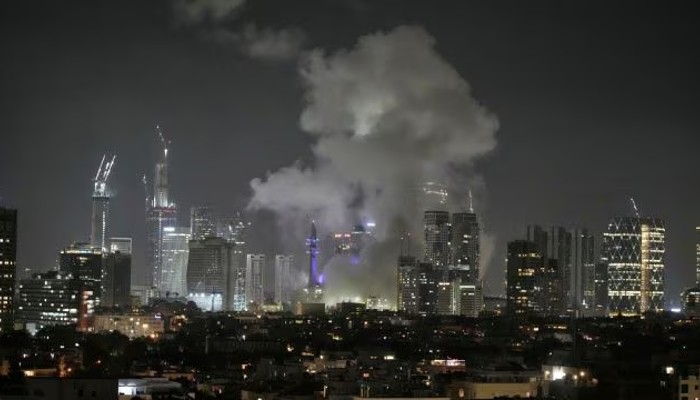Iran and Azerbaijan Launch Joint Military Drill in Nagorno-Karabakh

Iran’s Islamic Revolutionary Guard Corps (IRGC) and Azerbaijan’s Special Forces have commenced a joint military exercise in Nagorno-Karabakh, highlighting a rare act of bilateral defence cooperation amid ongoing regional peace efforts.
Iran's Revolutionary Guard and Azerbaijani special forces begin Aras-2025 military drill in Nagorno-Karabakh to boost regional border security.
Iran’s Islamic Revolutionary Guard Corps (IRGC) and Azerbaijan’s Special Forces have commenced a joint military exercise in Nagorno-Karabakh, highlighting a rare act of bilateral defence cooperation amid ongoing regional peace efforts.
A joint military exercise between the Islamic Revolutionary Guard Corps (IRGC) Ground Forces of Iran and Azerbaijan’s Special Forces began on Sunday, in a move both nations describe as aimed at enhancing border security and deterring potential regional threats.
The exercise, titled Aras-2025, is being conducted in territories within Nagorno-Karabakh that Azerbaijan reclaimed during the 2020 conflict with Armenia. The drill is scheduled to continue through 21 May, according to officials from both Tehran and Baku.
Brigadier General Vali Madani, Deputy Commander for Operations of the IRGC Ground Forces and the lead Iranian officer for the exercise, said the manoeuvres reflect growing military coordination between the two neighbouring countries. Speaking to Iranian media outlet Nournews, he stated that the drill was "a significant step toward strengthening mutual trust and security along shared borders."
The IRGC contingent entered Azerbaijan through the Bileh-Savar land crossing in Iran’s Ardabil Province. The region, located in north-western Iran, shares a long border with Azerbaijan and has historically played a role in cross-border relations.
The exercise comes at a time when Azerbaijan and Armenia are engaged in peace talks aimed at ending decades of conflict over the disputed Nagorno-Karabakh region. Iran, which borders both nations, has positioned itself as a supporter of the peace process and has expressed willingness to act as a stabilising force in the South Caucasus.
“The cooperation in Aras-2025 is part of broader efforts to ensure peace and stability in a sensitive geopolitical region,” Madani noted.
Tensions and Cooperation
While the joint drill marks a high point in Iran-Azerbaijan military cooperation, relations between the two countries have experienced fluctuations in recent years.
While the joint drill marks a high point in Iran-Azerbaijan military cooperation, relations between the two countries have experienced fluctuations in recent years.
In 2023, the two sides held a similar exercise on Iranian soil in Ardabil Province. However, political disagreements have occasionally strained ties, particularly Iran’s discontent over Azerbaijan’s diplomatic relations with Israel. In 2022, Azerbaijan opened an embassy in Tel Aviv, a move that was met with strong criticism from Tehran.
Earlier this year, Kamal Kharrazi, chairman of Iran’s Strategic Council on Foreign Relations and a key adviser to Supreme Leader Ayatollah Ali Khamenei, issued a warning to Baku regarding its deepening ties with Israel. During a January meeting with Hikmet Hajiyev, Azerbaijan’s foreign policy adviser, Kharrazi urged Azerbaijan to consider its neighbours’ “sensitivities.”
Additionally, tensions resurfaced in December 2024 when Azerbaijani President Ilham Aliyev publicly condemned remarks made by Hassan Ameli, the Friday Prayer leader of Ardabil, who had accused Azerbaijan of collaborating with Israel.
Despite these political challenges, the current drill suggests that military cooperation remains a viable channel for maintaining engagement between the two countries.
Nagorno-Karabakh, a mountainous enclave internationally recognised as part of Azerbaijan but historically populated by ethnic Armenians, has been a source of conflict for over three decades. In 2020, Azerbaijan regained control of significant portions of the region following a six-week war, leading to a Russia-brokered ceasefire.
Iran, which has long advocated for peaceful resolution of the dispute, welcomed the framework of a peace deal reached in March 2025, under which Armenia agreed to recognise Azerbaijani sovereignty over the territory.
Tehran has also offered to contribute to post-conflict reconstruction and development in the region. By participating in joint exercises such as Aras-2025, Iran signals its readiness to remain a key player in the evolving security architecture of the South Caucasus.
The ongoing drill also highlights a broader trend of strategic recalibration in the region, where states are increasingly balancing national interests with shifting alliances and external pressures.

Israel-Iran Conflict Escalates: Missiles Exchanged Amidst Mossad-Led Strikes
Tensions soar as Israel and Iran exchange missile strikes. Israel targets nuclear sites, Iran retaliates with ballistic missile barrage, raising war fears.
| 2025-06-14

Iran Summons UK Diplomat Over Arrests of Nationals in Terror Probes
Iran protests UK arrests of its nationals over terror charges, calling the move baseless and politically motivated. Three Iranians face national security charges.
| 2025-05-19

India and Iran Discuss Chabahar Port Amid Regional Tensions
India’s NSA Ajit Doval and Iran’s Ali Akbar Ahmadian discussed expanding cooperation on the Chabahar port and regional stability amid India-Pakistan tensions.
| 2025-05-19

Qatar Airways Profit Surges 28% to $2.1 Billion on Global Expansion
Qatar Airways reports a record $2.1 billion profit, driven by international investments and a landmark aircraft and engine deal with Boeing and GE Aerospace.
| 2025-05-19

Haj Flights Resume Between Saudi Arabia and Iran After Eight-Year Pause
Flynas restarts haj flights from Iran for the first time since 2015, signalling improved Saudi-Iran relations after a Chinese-brokered deal in 2023.
| 2025-05-19




